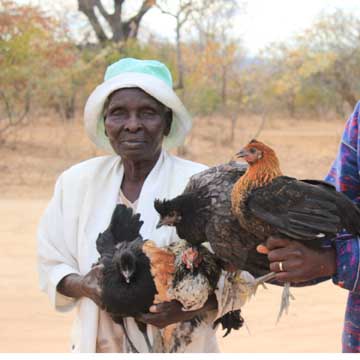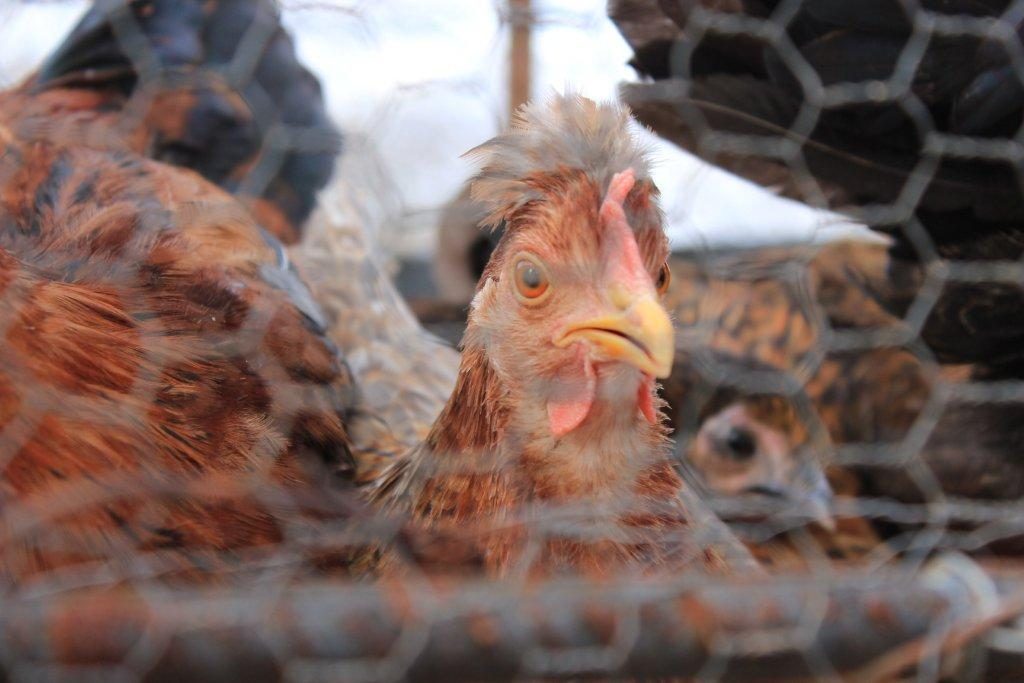July 4, 2012
The car horn gets me moving quickly and I grab my water bottle on my way out the door. Q and I are going a couple of hours away to conduct a chicken training to a group of grandma’s who are caring for orphans. Along the way, we talk about many things: the role of women in Zimbabwean society, life during the colonial days, what sort of foods are eaten here which I haven’t had yet (worms, field mice, etc), Hwange National Park, Victoria Falls, the price of food and how it is changing the face of poverty, Lassie, scary-looking dogs, etc, etc.
 We sit under an avocado tree on hand hewn benches, surrounded by grandmas who are ready to learn about chickens and their care. While we wait for more grandmas to arrive, I interview the ones there in order to get their stories down. I meet one grandma whose name is my own grandmother’s, the grandma of my heart. I tell her that my grandma is Josphine, too, but that we pronounce it differently because my grandma is from Colombia. She tries out my “Josefina” on her tongue and finds it tastes just as good as her “Josphine”. She repeats it to herself a couple of times, as if to remember it for later.
We sit under an avocado tree on hand hewn benches, surrounded by grandmas who are ready to learn about chickens and their care. While we wait for more grandmas to arrive, I interview the ones there in order to get their stories down. I meet one grandma whose name is my own grandmother’s, the grandma of my heart. I tell her that my grandma is Josphine, too, but that we pronounce it differently because my grandma is from Colombia. She tries out my “Josefina” on her tongue and finds it tastes just as good as her “Josphine”. She repeats it to herself a couple of times, as if to remember it for later.
They seem shy but are willing to answer my questions, which helps me understand their lives just a tiny bit. The daughter who’ve died, leaving them with grandbabies to raise. The sons who’ve pass on. The husbands who are no more. Somehow, these women have survived tragedy after tragedy, holding on to a thin veil of hope, believing that despite everything, their grandchildren will do better than they did. I ask them what the gift of five chickens means to them.
School fees.
Food.
Soap.
A future.
A new blanket.
 I take them on a journey of possibilites and we work on numbers. We determine that at the worst case scenario, they will each have 35-40 chickens by the end of the year (after eating some eggs and losing some chicks to predators or illness). One woman squints her eyes and says in N’debele, “We will be rich”. Her voice is soft, her poise calm, her tone straight forward. She shows no external excitement. In fact, she looks a bit wary, a bit careful as she utters those words. Once translated, I look at her square in the eyes and say “That is the point”. It seems that no translation is necessary because as the words come out of my mouth and I gesture that this is what we want for them, they all break out in smiles and laughter. It seems that they were afraid to point out what could possibly be true – that in one year, they might be richer than they ever thought they’d be. That in a year’s time, they might have 35 chickens to call their own, some to be sold, some to be eaten and some to be kept as layers. Once the realization hits that this is where their children’s future might lay, they are eager to know what to do, what the contract demands of them and of us, how to build the best house for their chickens, and how to do record keeping.
I take them on a journey of possibilites and we work on numbers. We determine that at the worst case scenario, they will each have 35-40 chickens by the end of the year (after eating some eggs and losing some chicks to predators or illness). One woman squints her eyes and says in N’debele, “We will be rich”. Her voice is soft, her poise calm, her tone straight forward. She shows no external excitement. In fact, she looks a bit wary, a bit careful as she utters those words. Once translated, I look at her square in the eyes and say “That is the point”. It seems that no translation is necessary because as the words come out of my mouth and I gesture that this is what we want for them, they all break out in smiles and laughter. It seems that they were afraid to point out what could possibly be true – that in one year, they might be richer than they ever thought they’d be. That in a year’s time, they might have 35 chickens to call their own, some to be sold, some to be eaten and some to be kept as layers. Once the realization hits that this is where their children’s future might lay, they are eager to know what to do, what the contract demands of them and of us, how to build the best house for their chickens, and how to do record keeping.
Once I am done with the contract and record keeping portion of the workshop, my part in the training is done and I head off in search of wood. A woman joins me and helps me build a small fire on the opposite side of the small, weather beaten church, while two adolescent girls go to a river for water. The walk is long and in the time they go and come back, the fire is ready, almost out, revived again. I’ve managed to make 50+ butter and jam sandwiches while squatting on the hot ground. They are stacked in tall columns, these sandwiches, as tasty as I could make them with the two ingredients we have. Q had purchased the bread, butter, jam, tea, milk, and sugar on our way to the training and I was incredulous at the amount of bread. In his quiet manner, Q tells me that rural Africans eat as much as they can when food is available because they never know when they will eat again. He assures me the sandwiches will be gone at tea time.
The workshop ends at the same time as I round the corner of the church building with a pan in one hand and a small pitcher of water in the other. Old women with beautiful black, wrinkled, hard-working, sometimes arthritic, hands are surprised that a white woman is offering to wash their hands. They laugh shyly and hold out their hands over the pan as a thin stream of water gets poured on them. They scrub and I pour a bit more. Down the line I go until we are done and can go into the church where four more benches, a large pot of tea, and more than fifty sandwiches wait for us.
Q is right. There is no food left by the time he and I head out the door.
A pair of those beautiful old hands grabs one of mine as I say good-bye and she kisses it. I am undone. I hug her tightly and she says against my neck one, two, three times – “thank you. thank you. thank you”. I say “thank you” back because the gift is mine.

